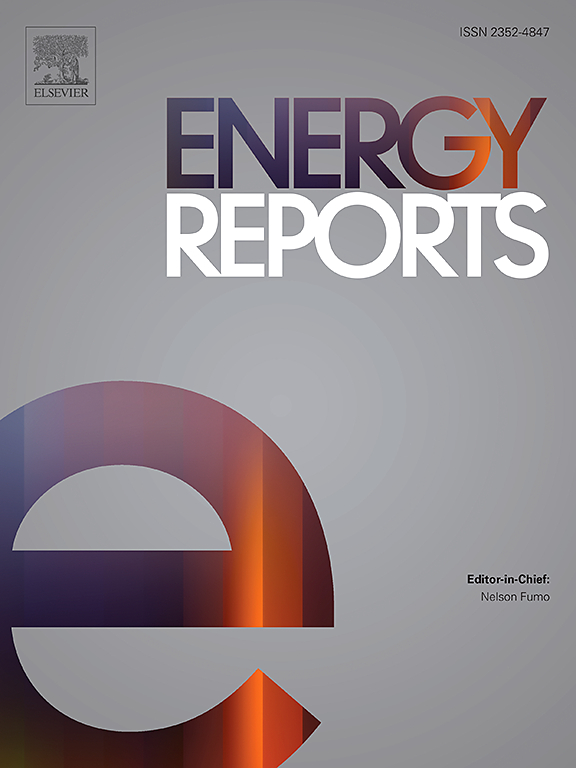Biogas generation from food waste through anaerobic digestion technology with emphasis on enhancing circular economy in Sub-Saharan Africa – A review
IF 4.7
3区 工程技术
Q2 ENERGY & FUELS
引用次数: 0
Abstract
Globally, 2.2 billion tons of municipal solid waste (MSW) are generated, primarily being disposed of as landfills and couple with fossil fuels (FFs) in polluting the environment resulting in the loss of over 600,000 human life in Sub-Saharan Africa (SSA). Besides, MSW particularly food waste (FW) is a potential alternative clean energy source and is abundant in urban and rural areas. The impact and challenges of FW on biogas production particularly in Sub-Saharan Africa, are not well understood. Still, there exists a large gap of access to clean energy in SSA compared to the rest of the world, especially G20. Therefore, this review explores the impact and challenges of utilizing FW for retrieving biogas for use as clean energy source in urban and rural areas in SSA towards attainment of sustainable development goal 7 (SDG7) and reduce human loss of life resulting from the use of harmful energy sources. The findings reveal that the impact of energy retrieved from FW alone through anaerobic digestion (AD) process is minimal and faces feedstock, structural and AD technology associated challenges. Anaerobic co-digestion of FW with animal manure and the integration of pyrolysis and AD process can significantly address these challenges. Based on the amount of FW availability, a significant impact of biogas from FW can be as high as 57 % and 43 % in urban and rural areas, respectively, if such challenges are timely addressed. This can greatly reduce human loss of life and increase access to clean energy, promote circular economy, protect the environment, and accelerate achievement of SDG7.通过厌氧消化技术利用食物垃圾产生沼气,重点是加强撒哈拉以南非洲的循环经济--综述
全球共产生了 22 亿吨城市固体废物(MSW),这些废物主要被填埋处理,并与化石燃料(FFs)一起污染环境,导致撒哈拉以南非洲地区(SSA)60 多万人丧生。此外,城市生活垃圾,尤其是厨余垃圾(FW)是一种潜在的替代清洁能源,在城市和农村地区都很丰富。人们对厨余垃圾对沼气生产(尤其是在撒哈拉以南非洲地区)的影响和挑战还不甚了解。与世界其他地区(尤其是二十国集团)相比,撒哈拉以南非洲地区在获取清洁能源方面仍然存在巨大差距。因此,本综述探讨了在撒哈拉以南非洲的城市和农村地区利用沼气回收作为清洁能源的影响和挑战,以实现可持续发展目标 7(SDG7),减少因使用有害能源而造成的人员伤亡。研究结果表明,仅通过厌氧消化(AD)工艺从废物中获取能源的影响微乎其微,而且还面临着原料、结构和厌氧消化技术方面的挑战。将 FW 与动物粪便进行厌氧共同消化,并将热解与厌氧消化工艺结合起来,可以极大地解决这些难题。根据可利用的垃圾量,如果能及时应对这些挑战,垃圾产生的沼气对城市和农村地区的影响可分别高达 57% 和 43%。这可以大大减少人类的生命损失,增加清洁能源的获取,促进循环经济,保护环境,加快可持续发展目标 7 的实现。
本文章由计算机程序翻译,如有差异,请以英文原文为准。
求助全文
约1分钟内获得全文
求助全文
来源期刊

Energy Reports
Energy-General Energy
CiteScore
8.20
自引率
13.50%
发文量
2608
审稿时长
38 days
期刊介绍:
Energy Reports is a new online multidisciplinary open access journal which focuses on publishing new research in the area of Energy with a rapid review and publication time. Energy Reports will be open to direct submissions and also to submissions from other Elsevier Energy journals, whose Editors have determined that Energy Reports would be a better fit.
 求助内容:
求助内容: 应助结果提醒方式:
应助结果提醒方式:


